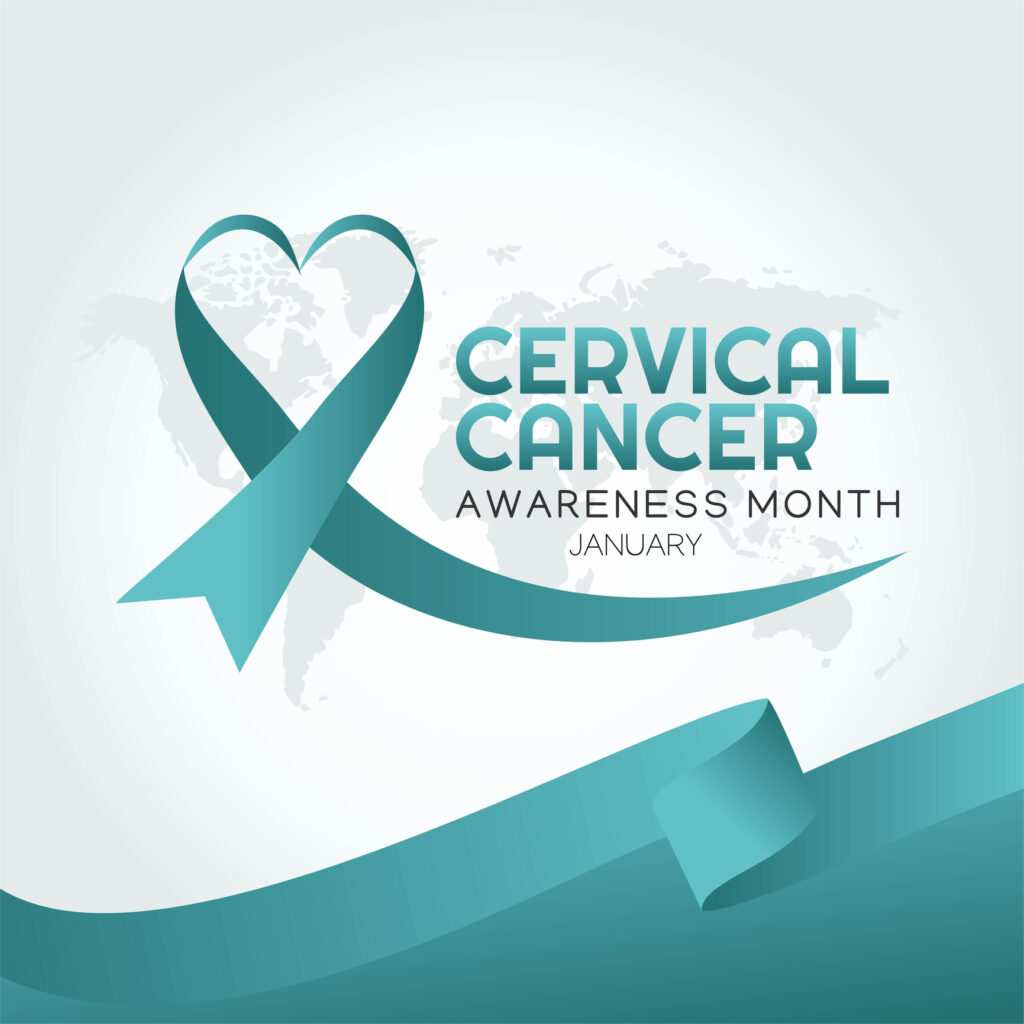
This month, learn and share how women can protect themselves from HPV (human papillomavirus) and cervical cancer.
In the U.S., Hispanic women have the highest rate of cervical cancer, followed by African Americans, Caucasians, American Indians, and Pacific Islanders.1 Though cervical cancer is the second most common type of cancer for women worldwide, it is also a highly preventable and treatable cancer, due to improved screening and vaccination. Some methods of prevention include continuous screening and vaccination against HPV, as well as using a condom when having sexual intercourse.2
The HPV virus is common among women and is the main cause of cervical cancer. The HPV vaccine, which must be given in three doses, can protect women against four HPV types.
Most women diagnosed are over the age of 30. Though not common, it does affect women under age 20 and women older than 65. Women should begin screening at age 21, or once sexually active. Two tests can help prevent cervical cancer or find it early.3
The Pap test (or Pap smear) looks for precancers, which are cell changes on the cervix that might become cervical cancer if they are not treated appropriately.2
The HPV test looks for the virus that can cause these cell changes.2
The National Breast and Cervical Cancer Early Detection Program provides low-income, uninsured, and underserved women access to timely cervical cancer screening and diagnostic services.
This January:
Encourage women to get their well-woman visit this year.
- Let women know that the health care reform law covers well-woman visits and cervical cancer screening. This means that, depending on their insurance, women can get these services at no cost to them.
- Talk to parents about how important it is for their pre-teens to get the HPV vaccine. Both boys and girls need the vaccine.
For more information, click here.
- https://gis.cdc.gov/Cancer/USCS/DataViz.html
- https://www.cdc.gov/cancer/cervical/basic_info/prevention.htm#:~:text=The%20most%20important%20things%20you,test%20results%20are%20not%20normal
- https://www.cdc.gov/cancer/cervical/basic_info/screening.htm
